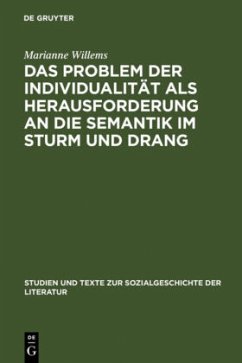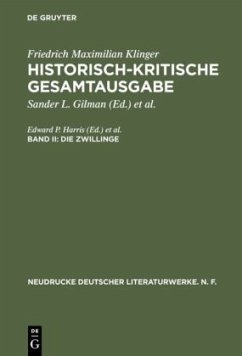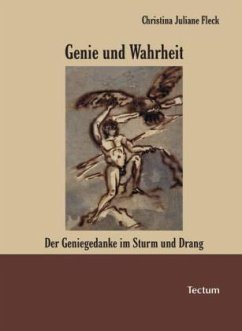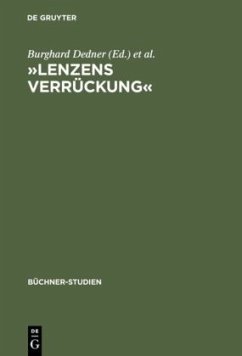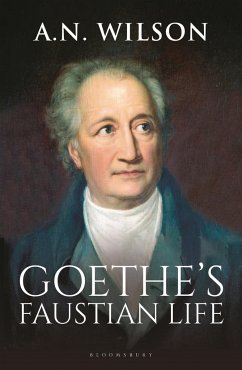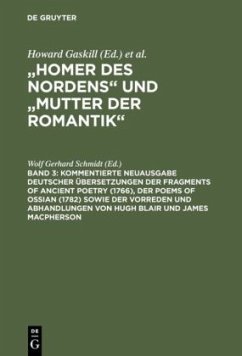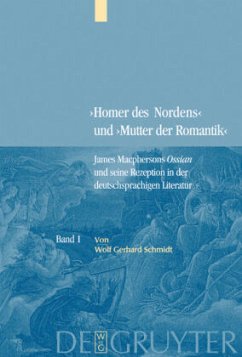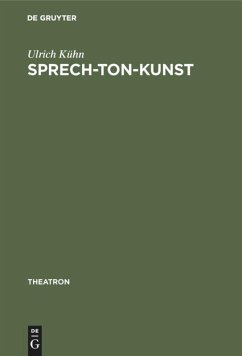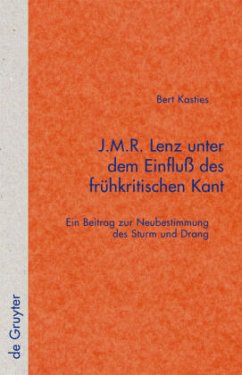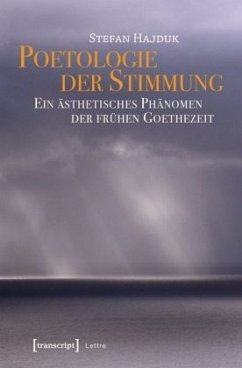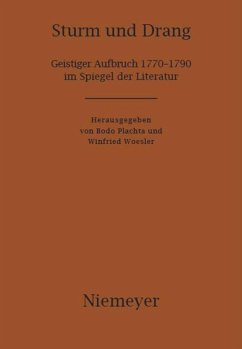
Sturm und Drang
Geistiger Aufbruch 1770-1790 im Spiegel der Literatur
Herausgegeben: Plachta, Bodo; Woesler, Winfried
Versandkostenfrei!
Versandfertig in 6-10 Tagen
154,95 €
inkl. MwSt.

PAYBACK Punkte
0 °P sammeln!
Der vorliegende Band versammelt die Beiträge eines literaturwissenschaftlichen Kolloquiums, das 1994 zur Erinnerung an den 200. Todestag des Staatsmannes, Juristen und Literaten Justus Möser (1720-1794) an der Universität Osnabrück stattgefunden hat. Die Aufsätze gehen aus unterschiedlichen Perspektiven den Spuren eines Aufbruchs in der Literatur zwischen 1770 und 1790 nach. Die literaturgeschichtliche Entwicklung in England, Frankreich, Italien und den Niederlanden wird ebenfalls in den Blick genommen, um die Bewegung des Sturm und Drang in Deutschland als ein im Kontext der gesamteuropäischen aufgeklärten Literaturentwicklung stehendes Phänomen zu begreifen. Übergreifend oder den Einzelfall betrachtend gehen die Beiträge Fragen der Periodisierung, der Rezeption und Wirkung nach, erläutern die zeitgenössische Diskussion, z.B. über die Geschlechterdifferenz, oder untersuchen programmatische Lebensentwürfe und den Stellenwert publizistischer Äußerungen im zeitgenössischen Diskurs.
This volume assembles the papers delivered at a literary studies colloquium held at Osnabrück University in 1994 to mark the 200th anniversary of the death of statesman, jurist and writer Justus Möser (1720-1794). The articles cast light from a variety of perspectives on the intellectual and literary upheaval that took place in Germany between 1770 and 1790. With a view to situating the "Sturm und Drang" phenomenon in the context of the European Enlightenment as a whole, literary developments in Britain, France, Italy and the Netherlands are also focussed upon. From a broader or more individual vantage, the articles discuss questions of periodicity, reception and impact, illuminate the talking-points of the day (e.g. the debate on the 'gender gap') or investigate such things as programmatic lifestyles and the status and influence of journalistic comment in contemporary discourse.
This volume assembles the papers delivered at a literary studies colloquium held at Osnabrück University in 1994 to mark the 200th anniversary of the death of statesman, jurist and writer Justus Möser (1720-1794). The articles cast light from a variety of perspectives on the intellectual and literary upheaval that took place in Germany between 1770 and 1790. With a view to situating the "Sturm und Drang" phenomenon in the context of the European Enlightenment as a whole, literary developments in Britain, France, Italy and the Netherlands are also focussed upon. From a broader or more individual vantage, the articles discuss questions of periodicity, reception and impact, illuminate the talking-points of the day (e.g. the debate on the 'gender gap') or investigate such things as programmatic lifestyles and the status and influence of journalistic comment in contemporary discourse.



